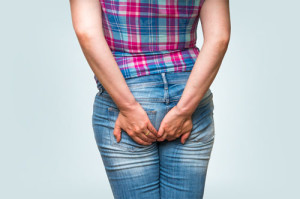 Even though we know our doctors are there to help us, some physical ailments can be embarrassing to discuss. Anal fissures are one such topic.
Even though we know our doctors are there to help us, some physical ailments can be embarrassing to discuss. Anal fissures are one such topic.
An anal fissure is essentially a tear in the lining of the lower rectum at or near the sphincter. They form in response to trauma. Injury can occur from dehydration which will cause harder stools and constipation. When you strain to pass a stool, it puts undue pressure on your entire rectal area. Repeated diarrhea as well as child birth can also lend themselves to producing rectal tears and fissures.
If you have a fissure what you will experience during bowel movements is a burning, stinging and often itching pain. It can be extreme during the movement and can last for minutes or even hours afterwards.
At home treatment is the first line of attack
-Take fiber supplements
– Eat higher fiber foods (Beans, vegetables, beans and whole grains)
– Exercise
– Drink plenty of water
– Do not strain to complete bowel movements
– Stool softeners may be needed
– Take Sitz Baths daily to help calm the tissue
– Nonprescription creams can be helpful (Preparation H, Anusol or 1% Hydrocortisone)
– Using medicated wet wipes instead of dry toilet paper is recommended
How is an anal fissure diagnosed?
Your physician will do a physical exam assisted by an anoscopy (a short lighted scope to look in the anal canal.) Medicine can be used to numb the area during the exam if needed. At that time they may also be able to diagnose the condition which is causing the fissure itself.
If the tissue isn’t healing within 8-12 weeks, seeking professional care is advised.
Prescription medications may be used including high blood pressure medication in gel form, Botox injections or nitroglycerin cream.
If these methods still fail, surgery may be recommended.
If you are looking for a Colorectal Specialist in the SW Florida area please visit www.ipalc.org/find for an approved physician.
Share on Facebook




 Southwest Florida Medicine.com is dedicated to bringing you the very best health information available today!
Subscribe or check back regularly!
Southwest Florida Medicine.com is dedicated to bringing you the very best health information available today!
Subscribe or check back regularly!